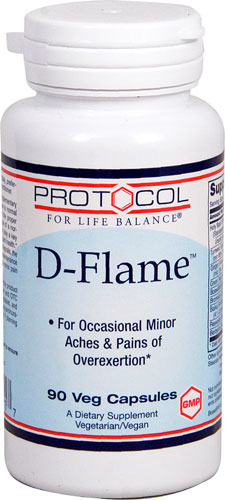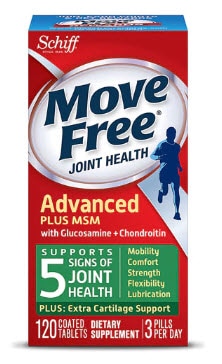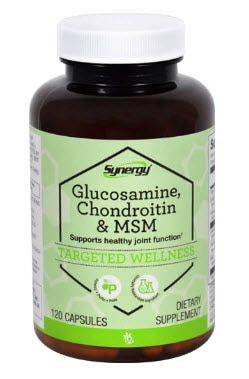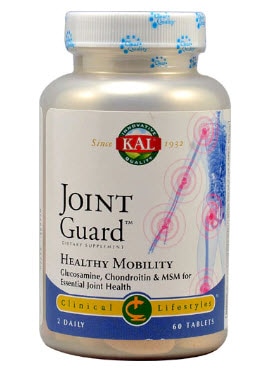If you’re looking for ways to ensure healthy, pain-free joints, put nutrition at the top of your list. Eating a diet rich in anti-inflammatory foods is a smart way to support joint health while also providing the nutrients needed to keep stiffness, pain and swelling at bay.
5 Best Foods for Joint Health
Fatty fish
Fatty fish, such as salmon, sardines, mackerel and albacore tuna, are rich in omega-3 essential fatty acids, nutrients well known for supporting a healthy inflammatory response in the body. Because we don’t make omega 3s on our own, it’s important to consume them regularly. Research suggests that 8 to 12 ounces of seafood weekly is best for health. Not a fan of fish? Experiment with different marinades and recipes to discover flavors you like. Or, consider taking an omega-3 supplement.
Olive oil
A staple in the health-promoting Mediterranean diet, olive oil is packed with healthy fats (including omega-3 essential fatty acids), antioxidants and other nutrients that support a healthy inflammatory response in the body. In addition, it contains a polyphenolic compound called oleocanthal which is known for its strong anti-inflammatory activities. Aim for two to three tablespoons of olive oil in your daily diet. Use it in homemade salad dressings, to saute veggies or even in desserts such as this Olive Oil Fig Spoon Cake!
Tart cherry juice
Tart cherry juice, made from the fruit of the Prunus cerasus tree, is loaded with antioxidants. Antioxidants work to reduce inflammation in the body by protecting healthy cells from free radical damage and supporting an overall healthy inflammatory response. Look for unsweetened tart cherry juice so you aren’t adding sugar to your diet, and limit consumption to one small glass a day. If you choose a concentrate, you can add it to water or seltzer for a tasty drink.
Walnuts
Walnuts are the super nut! They provide healthy fats, antioxidants, fiber, vitamins and minerals. Walnuts are higher in omega-3 fatty acids than any other nut. The omega-3 fat from plant foods is known as alpha-linolenic acid (ALA). Besides having anti-inflammatory properties, ALA is known for its cardioprotective and neuroprotective benefits. Remember that walnuts are high in calories, so keep portion size in mind. Toss walnuts onto salads, cereal or yogurt, or just eat them as is for a satisfying snack.
Turmeric
Turmeric is a spice well known for its health-promoting properties. Curcumin, its main active component, has been shown to demonstrate powerful anti-inflammatory effects. Turmeric can be enjoyed as a seasoning in a variety of dishes, from curries to meatballs to dips. You can even sip it in tea or lattes. Quick tip: It helps to consume turmeric with black pepper, which contains piperine, a natural substance that enhances the absorption of curcumin.
What to Avoid
Trans fats
Also known as partially hydrogenated oil, trans fats can be found in most processed foods (such as crackers, cookies, cereals, baked goods, salad dressings and more), as well as in margarine and shortening. This type of fat has been shown to increase inflammation, lower good cholesterol and raise bad cholesterol.
Soda
One can of regular soda contains 39 grams of sugar. The entire daily intake of sugar should be 25 grams for women and 37 grams for men. Sugar can increase inflammation in the body, causing pain and stiffness in your joints. Be watchful of adding other sugary foods to your daily diet, as well. Note: diet soda is a no-no, too. Your body has a hard time processing artificial ingredients, so substances such as aspartame may trigger an immune response and cause inflammation.
Refined carbohydrates
White bread, white flour, crackers and white pasta are refined carbohydrates that can cause blood glucose to spike, increasing inflammation in the body. Replace refined grains with whole grains such as brown rice, whole wheat flour, whole grain breads and whole grain crackers.
High-fat dairy and cheese
Dairy products that are high in saturated fat are inflammation triggers. Avoid full fat cream cheese, butter, milk and cheese. Not all dairy is off limits, however. Fermented dairy products like Greek yogurt are considered anti-inflammatory and can stay in your diet.
MSG
Monosodium glutamate (MSG) is a chemical food enhancer and is known to trigger inflammation. Replace MSG with natural sea salt, bone broth, herbs and spices.
Bonus Tips for Joint Health
Keep in mind that diet isn’t the only factor that causes inflammation. Stress, pollution, excess weight, dehydration and lack of sleep can trigger it, too.
- Stay flexible. Stretch at least three times a week.
- Keep moving. Activity decreases stiffness.
- Maintain a healthy weight. Added pounds increases strain on joints.
- Increase muscle. Strong muscles give joints more support.
- Keep a good range of motion. Perform exercises that increase the full movement potential of the joints.
- Take a glucosamine, chondroitin and MSM supplement.
Looking for additional support for your joints? Consider one of these supplement formulas:







